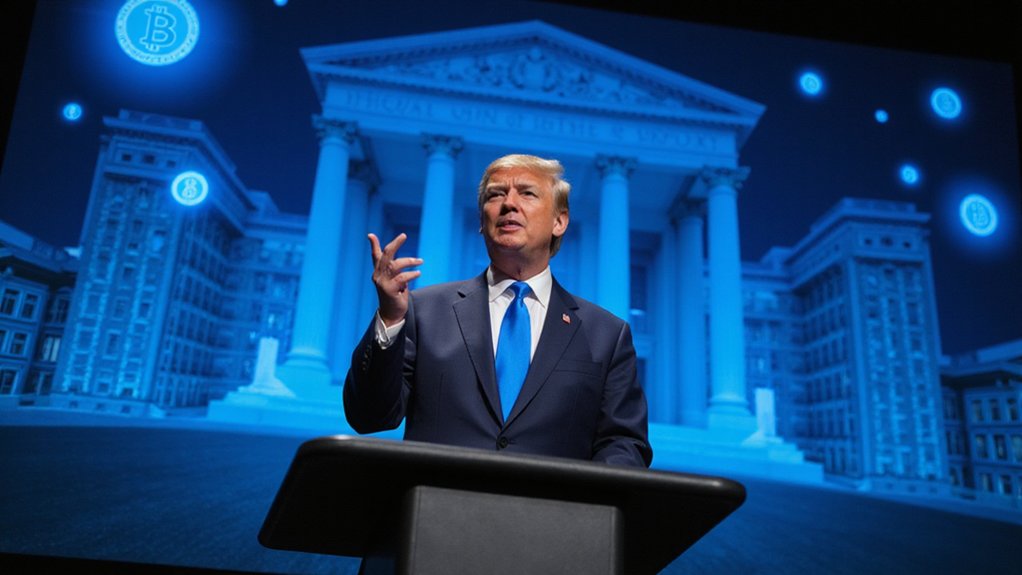Robinhood has pivoted from democratizing stock trading for retail investors to orchestrating what might charitably be called an ambitious reimagining of European securities markets—launching tokenized stocks for over 200 U.S. companies across 30 EU countries while simultaneously developing its own Layer 2 blockchain infrastructure.
Robinhood’s European tokenized stock launch represents either revolutionary market democratization or elaborate technological theater masquerading as innovation.
The platform’s European expansion transforms stock ownership into blockchain tokens, offering zero commissions and 24/5 trading access to over 400 million potential users across the European Economic Area. These tokenized securities, initially issued on Arbitrum’s Ethereum scaling solution, enable fractional ownership while delivering dividends directly through Robinhood‘s platform—a neat circumvention of traditional settlement delays and custody complexities.
More intriguingly, Robinhood is constructing its proprietary Layer 2 blockchain based on Arbitrum technology, specifically optimized for trading tokenized real-world assets. This infrastructure promises faster transactions, lower costs, and eventually 24/7 trading capabilities—because apparently, the markets’ existing volatility wasn’t sufficiently exhausting without weekend participation.
The blockchain will support self-custody and cross-chain bridging, features that transform Robinhood’s EU application from crypto-only to an integrated investment platform. The company has also introduced the Robinhood Gold Credit Card, which provides cash back on purchases that can be used for cryptocurrency investments.
The company has simultaneously expanded its crypto offerings, introducing perpetual futures trading through a Bitstamp partnership and launching cryptocurrency staking for U.S. customers. These perpetual contracts allow speculation on asset prices without expiration dates, catering to traders who find regular derivatives insufficiently complex. The WonderFi acquisition for $180 million, planned for the second half of 2025, will further bolster Robinhood’s Canadian crypto operations.
Robinhood’s strategy reflects broader institutional recognition of blockchain technology’s potential to restructure traditional finance. By tokenizing equities, the platform increases transparency, reduces settlement times, and enables fractional ownership—democratizing access to U.S. markets for European investors previously constrained by minimum investment thresholds or complex cross-border regulations. This approach aligns with the crypto market’s evolution from speculation to tangible utility, as institutions increasingly adopt blockchain solutions for practical financial applications.
The regulatory landscape in Europe appears accommodating, with frameworks permitting innovative financial products that blend traditional securities with blockchain infrastructure. This regulatory clarity facilitates Robinhood’s expansion while positioning the company to compete against both conventional brokerages and decentralized finance platforms.
Whether this crypto-native approach to securities trading represents genuine innovation or elaborate technological theater remains to be determined. However, Robinhood’s integration of tokenized stocks, proprietary blockchain infrastructure, and expanded derivative products suggests a thorough reimagining of retail investment platforms—one that could fundamentally alter how European investors access global markets.









